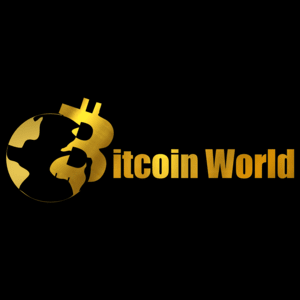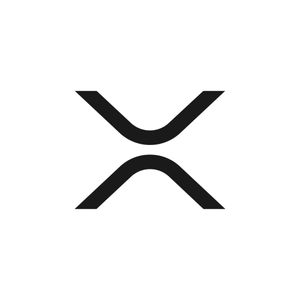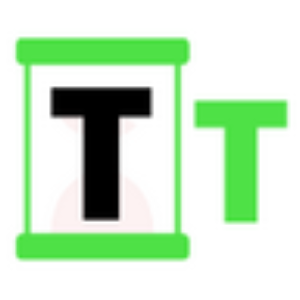Animoca Brands & Open Campus Empower DeFi Student Loans with $10M Injection
5 min read
Imagine a world where accessing funds for education isn’t bogged down by traditional red tape, high interest rates, or geographical barriers. That’s the promise of decentralized finance (DeFi) making inroads into real-world applications. A significant step towards this future was recently announced, focusing specifically on DeFi student loans . What’s Happening with DeFi Student Loans? The big news making waves in the Web3 and education sectors is the substantial liquidity injection into Pencil Finance. Animoca Brands, a major player known for its blockchain gaming investments, and Open Campus, a Web3 protocol focused on education, have jointly committed $10 million to Pencil Finance. This funding isn’t just an investment; it’s specifically earmarked to provide liquidity that will serve as collateral on the Pencil Finance platform. The goal? To facilitate decentralized student loans. Pencil Finance is building its protocol on the EDU Chain, which is naturally aligned with educational initiatives, given Open Campus’s involvement in its development. This strategic alignment aims to create a robust ecosystem where education funding can be accessed and managed on the blockchain. How Do RWA Crypto and Student Loans Connect? At the heart of Pencil Finance’s approach is the concept of Real-World Assets (RWA). In this context, the ‘real-world asset’ is essentially the future earning potential or creditworthiness associated with a student loan. Tokenizing or representing these traditional financial instruments on the blockchain is what RWA crypto is all about. Here’s a simplified breakdown: Traditional Student Loans: Issued by banks or government entities, often involves complex application processes, credit checks, and fixed or variable interest rates tied to traditional financial markets. DeFi Student Loans (via RWA): Aims to tokenize the student’s loan agreement or future income share as an RWA. This token can then be used within a DeFi protocol like Pencil Finance. The $10 million provided by Animoca Brands and Open Campus acts as the initial pool of collateral. This allows borrowers (students) to potentially access funds against their tokenized RWA, while lenders (liquidity providers) earn yield from the interest paid on the loans. This bridges the gap between traditional finance (student loans) and decentralized finance (blockchain lending protocols). Why Are Animoca Brands and Open Campus Involved? This collaboration might seem unexpected at first glance, especially with Animoca Brands’ strong ties to gaming. However, Animoca Brands has a broad investment thesis focused on building the open metaverse and Web3 ecosystem. Education is a fundamental pillar of society and a critical area for Web3 adoption and innovation. Investing in platforms that tokenize real-world value, like student loans as RWA, aligns with their vision of expanding the utility and reach of blockchain technology beyond just collectibles and games. Open Campus ‘s involvement is perhaps more intuitive. As a Web3 education protocol, their mission is to empower educators and students globally. Facilitating access to education through innovative funding mechanisms like decentralized loans on the EDU Chain is directly in line with their core objectives. They are not just investors; they are actively building the infrastructure (EDU Chain) and fostering the ecosystem where protocols like Pencil Finance can thrive. Their joint investment signals strong confidence in Pencil Finance’s ability to execute on the complex task of bringing real-world student loans onto the blockchain in a secure and scalable way. What are the Benefits and Challenges of This Model? Bringing student loans into the RWA crypto and DeFi space offers exciting possibilities, but it’s not without its hurdles. Potential Benefits: Increased Accessibility: Potentially provides funding options to students in regions or circumstances where traditional financing is difficult to obtain. Lower Costs: Decentralized protocols can sometimes offer more competitive interest rates by cutting out traditional intermediaries. Transparency: Transactions and loan terms recorded on the blockchain can offer greater transparency. Innovation: Opens the door for new models of education financing, such as income-share agreements tokenized as RWA. Potential Challenges: Regulatory Uncertainty: The legal and regulatory framework for RWA, especially financial instruments like loans, is still evolving globally. Credit Risk Management: Assessing and managing the credit risk of borrowers in a decentralized, often pseudonymous environment is complex. Enforceability: Enforcing loan agreements based on tokenized RWA can be challenging without clear legal frameworks connecting the digital asset to the real-world liability. User Adoption & Education: Students and lenders need to understand how these new systems work, which requires significant education and user-friendly interfaces. How Does Blockchain Education Play a Role? The success of initiatives like Pencil Finance is intrinsically linked to the broader adoption and understanding of Blockchain education . For students to feel comfortable using a DeFi protocol for something as critical as their education funding, they need to trust the underlying technology and understand the process. Open Campus, being a key investor and the force behind the EDU Chain, is well-positioned to integrate education about decentralized finance, RWA, and blockchain technology into its ecosystem. This symbiotic relationship means that as more students learn about and engage with blockchain through platforms like Open Campus, the potential user base for DeFi applications like Pencil Finance grows. Conversely, successful RWA projects like this demonstrate tangible, real-world benefits of blockchain, further driving interest in learning about it. Looking Ahead: The Future of Education Finance? The $10 million liquidity injection from Animoca Brands and Open Campus is more than just a funding round for Pencil Finance; it’s a significant validation of the potential for DeFi and RWA to disrupt traditional financial sectors, starting with education. While challenges remain, particularly in regulatory clarity and risk management, the commitment from established Web3 entities like Animoca Brands and Open Campus provides crucial momentum. This development could pave the way for more innovative funding solutions for students worldwide, making education more accessible and aligning financial incentives in novel ways through blockchain technology. It’s a compelling example of how Web3 is moving beyond speculative assets to build practical applications that address real-world needs. To learn more about the latest crypto market trends, explore our article on key developments shaping blockchain education and RWA adoption.

Source: Bitcoin World



